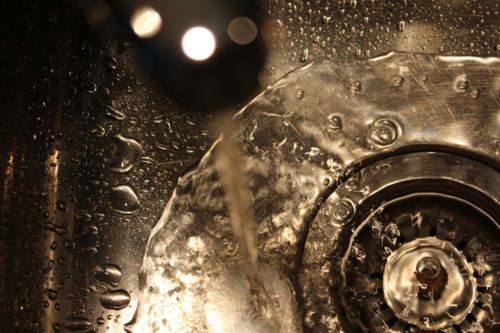8 Ways to Prevent a Blocked Drain
A blocked drain, whether in a commercial building or at home, is a huge pain. It can cause water to back up and produce awful smells, as well as potentially rending your kitchen or bathroom unusable.
Often, caring for and cleaning drains is overlooked. Although maintaining your drains should only take a short time out of each week, it can lead to a drastic increase in your home plumbing system’s life span.
Use Drain Strainers
Using a drain strainer is a simple and inexpensive way to help avoid a blocked drain.
Drain strainers are a small piece of mesh metal that sits in the sink, allowing water to run away while catching anything that could cause a nuisance to your plumbing system. In the kitchen, small, seemingly insignificant amounts of food debris can quickly lead to a big problem.
Drain strainers are also great for showers where long, thick hair is a regular culprit for blocked bathroom pipes. A strainer is a cheap, easy solution to prevent many drainage issues.
Plus, a well looked after plumbing system will add heaps of value to your home in the event you decide to sell. Buyers love a home that merely requires cosmetic adaptation and are particularly drawn to homes with robust plumbing and electrical systems. If you are in the process of purchasing a new home, a CCTV drain survey is essential for you to fully appreciate the inner workings of the property.
Clean Drains Regularly
Most people do not give much thought to cleaning their drains until it becomes too late. Boiling water is a simple, inexpensive, and easy way to freshen up your plumbing. Although it won’t help break down fats, it will help keep the water flowing easily through your pipes.
Avoid using chemical drain cleaners, which can often make the problem worse. There are plenty of non-hazardous, non-chemical cleaners on the market. Many of which are environmentally friendly. Additionally, these are often favoured by those with small children or pets, lowering any unlikely risks around the home.
Baking soda and white wine vinegar is also an excellent home remedy for cleaning drains, handily made from ingredients you may already have at home. If you opt for this method, allow the mixture to work its magic in the drains for approximately five minutes before thoroughly rinsing.
Cleaning your drains once per week should help prevent build-ups and any nasty surprises.
Avoid Flushing Pharmaceuticals
Although unlikely to lead to a drain blockage, flushing this kind of item is extremely bad for the environment. Rinsing medication into the sewers will pollute the atmosphere and over time, can lead to imbalances in the water ecosystem.
If you have any leftover medication you need to dispose of, you should always take it to the chemist, who will be able to destroy, or recycle it, safely on your behalf.
Avoid Washing Fats Down the Kitchen Sink
After cooking, it can be tempting to dispose of cooking fats and oils down the sink.
However, the grease will coat the pipes and as it is cooling; it will harden, clogging the drains. This simple mistake is tough to rectify. Pouring boiling water down the drain will not correct the issue, as water cannot break down fats.
Even if you were only to flush residual grease down the sink, it would not take a long time for this to build up and cause you a severe issue.
The best method for disposing of oil and fats is pouring it into a sealable container and waiting for it to cool and harden. Then you can dispose of it as you would your regular rubbish.
Do Not Flush Non-Paper Products
Nappies, face wipes, and sanitary products are all guilty of blocking drains. Even though many modern nappies are made from biodegradable materials, they are not designed to be flushed.
In London, the most significant cause of drain blockages is flushed nappies. Don’t believe the myth that once in a while won’t make a difference. Even small irregular mistakes can lead to a large and possibly expensive issue.
It is worth educating your children from a young age about what should and should not be flushed down the toilet. It can save you a great deal of upset later down the line.
Be Careful with Paint
While it might sound obvious not to pour half a tin of paint down your drain, it is surprising how little paint it takes to block your pipes.
Be extra careful when cleaning out your brushes and trays, ensuring paint cannot be flushed down the sink.
Not only will you struggle to flush the paint through the pipes and likely result in a blocked drain, but the chemicals are extremely bad for the environment when washed into the sewage system.
Routine Inspections
Prevention is better than the cure, which is why taking care of your drains will always work out more time and cost-effective than letting an issue build up.
FS Drainage offers CCTV drain surveys for domestic and commercial properties, so that you can see your drainage system’s current state in a relatively non-evasive way. This is also a handy tool for homebuyers, enabling them to assess the drainage situation before purchasing a property.
Clear Leaves to Keep Outdoor Drains Safe
Remember to pay attention to the outside drains as well as the kitchen and bathroom.
Outdoor drains can often become blocked by grass cuttings, dead leaves, and twigs. This situation is easily avoidable by ensuring you regularly clean areas close to the drain entrance.
Placing a grate over the drain entrance will allow rainwater to run away but prevent other debris from causing blockages.
Consult a Professional
Remember, seek a professional when needed. Unblocking a drain is not usually a massive job for those who know what they are doing and have the right tools. However, attempting to fix the issue yourself or leaving a small matter to build into something out of control can lead to huge problems down the line.

